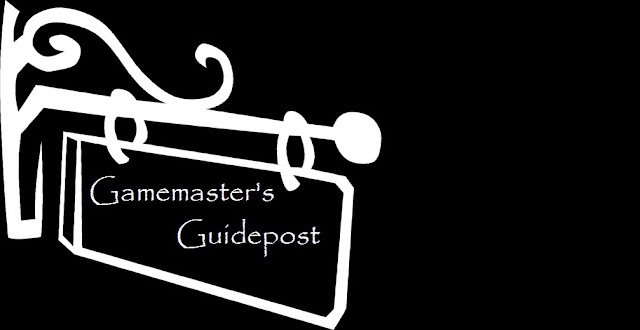I read about this over on +Douglas Cole‘s blog and it got me thinking:
Over on Google+ and the RPG Stack Exchange, +Jeff Demers was asking for help on how to set up a encounter where the players were being hunted. I’ve done this scenario so much in my twenty odd years of GMing I can do it in my sleep. I like to break it down into a series of steps:
0) Before you even think about doing something like this you need to know that your players will be into it. Some players don’t like being hounded, suborned, etc. and they will make it impossible for you to pull off any kind of situation like this.
1) Plan out the entire “hunters hunted” scenario from start to finish. It doesn’t need to be detailed and can literally be a note on a napkin reading something like “Wake up in middle of a maze > Get hunted by maze creatures > Finds magic ring to unlock the final door of maze > Ambush! > Next to final encounter > Final encounter/door way out > Home free!” You might want to be more detailed then that (and again you might not!), just make sure you got something down.
2) Figure out the pace. How many game sessions is this supposed to cover? One? Two? Three? You can stretch it out or even turn it into a entire adventure if you know what you’re doing. Regardless of how long it’ll take you need to keep the action intense or the players will get bored “Yay, we made it through the Blue door with the blue keycard, now we need the red keycard for the red door. Damn it, Christopher – stop planning your dungeons by playing Doom 3D!” Do keep in mind that if you intend to do a “hunted adventure” that you need to give your players some time to recoup, eat, etc.unless the entire point is to run them ragged.
3) Hit the clock. No, seriously, tell your players out of game their players have only X amount of time or something bad happens then do it in game. I like to occasionally run what I call “Bauer Time” where the total number of hours in game equals the total number of hours outside of the game (e.g., you spend 4 hours gaming and 4 hours total pass in the game world). I find it really focuses your players and keeps them sharp.
4) Be novel. Don’t just set up encounter after encounter with whatever hellhound you got on their tail. Throw in problems they can’t foresee (“I didn’t know going into the mines would involve dealing with a swamp kraken!”) or play on their disadvantages (“I don’t care if Hell itself is chasing me, I’m not leaving that woman half dead on the side of the road. We’ll just have to get caught.”).
5) Give the bad guys the same considerations: put them on a timeline, put obstacles in their way, etc. You don’t need to tell the players this, but for a chase scene to play out organically things must happen that the players cannot possibly know about in game.
6) Stick to the point. The point of such an adventure when you get down to it is to race against time – not against your pursuers. They’re a secondary effect of whatever cause is forcing you to flee them. Maybe they are stronger than you. Maybe they have more numbers. Maybe you have a message to deliver on foot or a war will break out for a measly want of a nail. Whatever the reason, know what drives both parties.
7) When it’s the end…that’s it. Don’t keep extending the chase. When it’s done for good or bad it’s done and the players have to live with the outcome. They may be grumpy about it – but they’ll respect you if you stick to it. You can’t win them all and sometimes the players need to remember that.


I'm thinking of the first proper episode of Battlestar Galactica, where the crew needs to jump every 33 minutes or face annihilation. That was good stuff. I'd love to go through something like that in GURPS.